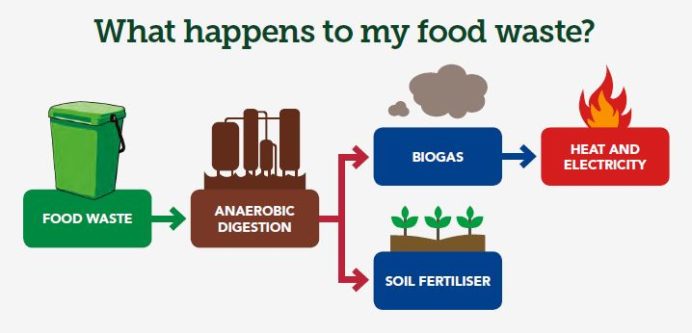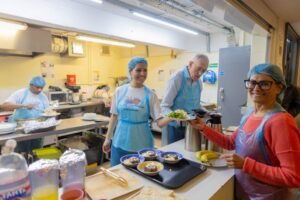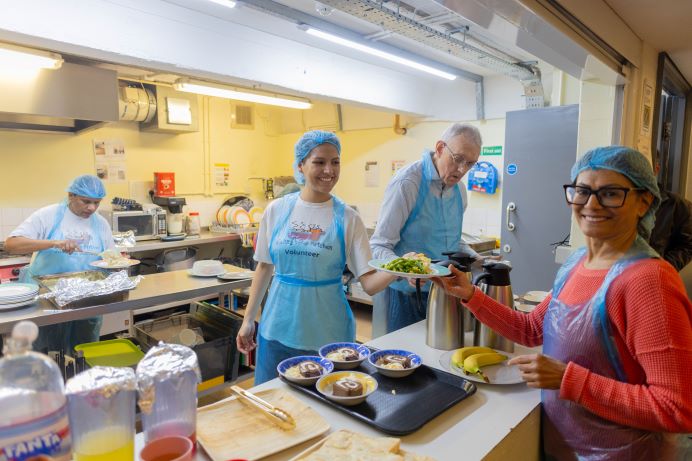Did you know that tea bags can be recycled as part of the council’s food waste recycling service? They then go on to have a remarkable journey.
When it comes to making the perfect cuppa, everyone has their own way of making it. Some put the milk in first, while others think that is terrible tea etiquette.
However you take it, research shows that Brits drink a staggering 36 billion cups of tea a year. So, what we do with those billions of tea bags after we squeeze them against the side of our mug could make a huge difference to the planet.
The tale of a teabag
Transferring your tea bags from mug to food waste kitchen caddy and then, once it is full, to a green food waste bin if you live in a house – or a communal food waste bin if you live in a flat – means they can embark on a transformative journey.
Your tea bags, and all other food waste, are taken by Greener Ealing food waste collection trucks as part of your weekly collection to a transfer station in Brentford run by the West London Waste Authority, which Ealing Council is part of. From there, it is transported by ‘green’ biogas-fuelled vehicles to a special processing plant in Surrey to begin the anaerobic digestion process. What is that, you ask? Read on.
The food waste is mechanically stripped of any contaminants and broken down into small particles to be pumped through a series of temperature-controlled tanks and monitored to ensure the various bacteria has the optimal conditions to digest the food effectively and to create biogas.
Clever, hey?
After 72 hours, the food waste is filtered and screened for purity to generate biogas and electricity and finally fed back into the National Grid, helping to heat and power homes and businesses with clean, renewable energy. What is left is nutrient rich agricultural fertiliser to improve soil and to grow more food in local farms.
And the cycle begins again every time you tip your tea bags and other food waste in the food waste bin.

‘A virtuous circle’
Councillor Deirdre Costigan, the council’s cabinet member for climate action, said: “Recycling our food waste has a triple whammy effect: It is good for the environment, it creates energy for our homes and it helps start the whole cycle again by also providing fertiliser for growers to produce more food. It is a virtuous circle.
“Our tale of a teabag shows how this happens every week. It is easy to recycle – thanks to the council’s recycling collection service, we can all do it. And it makes such a difference.”
Find out more
If you want to start recycling your food waste, ask for a food waste bin online, where you also find out about recycling other items in the borough.





